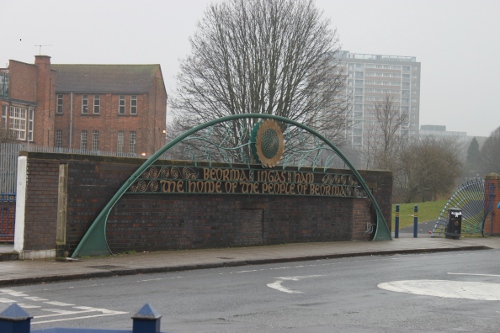Today Birmingham is of course the second largest city in the UK. Home to 1 million people and part of a huge conurbation of several million, its size and growth owes much to the Industrial Revolution for here and in the nearby Black Country many of the goods that helped build the British Empire were manufactured and certainly most of the guns.
But like with so many of our towns and villages the name Birmingham and its origins can be traced back fourteen or fifteen centuries to around the year AD 600. These are the years when thousands of Anglo-Saxons are crossing from Germany and Denmark and pushing west, creating a land that will one day be called England. The people who founded Birmingham are the Angles. Tradition says that the Angles who came to Mercia crossed the North Sea in around 527 and are thought to have reached Birmingham around the late 6th or early 7th Century. There they founded a hamlet on the banks of the River Rea at or close to the spot where the modern Gooch Road crosses the same river.
Who ever the people were that came here seemed to have been led by a man called Beorma. The name Birmingham comes from Beorma -Ingas-ham. That is old English and means “The settlement (ham) of People (ingas) of Beroma.” It is quite common to find Anglo-Saxon villages and towns named after the person who founded the settlement:

Today the spot is marked by this arch on the Bridge. The area- Highgate – is mainly tower blocks and modern housing estates and it is hard to imagine the place as once upon a time being a tiny Anglo-Saxon wooden village surrounded by dense woodland but non-the-less it is here that the origins of Birmingham start.




Related Articles
No user responded in this post